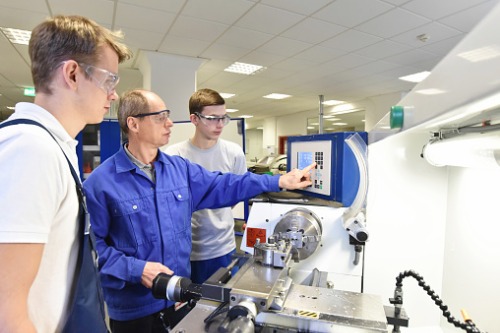
Undergraduate degrees with built-in internships have statistically significantly better graduate employment outcomes, new study shows.
Researchers Paul McCarthy and Mitchell Swayn from Ribit.net, Data61’s job and internship matching platform, found that longer courses are also associated with better employment outcomes – independent of field of study and institution.
Their report, titled: ‘Higher Education and Employment in Australia: The Impact of Internships’, analysed 700,000 data points covering students enrolled at 40 Universities across almost 5,000 undergraduate degrees spanning 21 fields of study to understand whether internships make a difference improve employment outcomes.
“The data shows that the more we can do as a nation to provide job opportunities to young people while they study the more likely they are to succeed and help grow our economy,” Liz Jakubowski, Director of Ribit.net at CSIRO’s Data61, said.
“It is well known and recognised that what you study has a big influence on your employability when you graduate and courses such as medicine, dentistry and pharmacy enjoy very high employment rates upon graduation when compared to generalist degrees in arts, science and business.”
Where students study was also found to have a significant influence on employment outcomes. However, the effect of other features of degrees such as whether they have built-in internship has been less clear, Jakubowski added.
By analysing all data on all undergraduate university degrees in Australia, the authors found that independent of field of study and institution, those courses with built-in internships enjoy materially better employment outcomes than those that don’t.
That means if a student is enrolled in a course with a work component, they have a greater chance of getting a job after graduation. This is particularly significant for generalist degrees in areas such as arts and science where internships can make a big difference to employment outcomes.
“It is very helpful to understand the relationship between course design and graduate outcomes and this analysis linking two publicly available Australian data sets provides a novel and valuable perspective,” Professor Pip Pattison, Deputy Vice-Chancellor (Education) at Sydney University, said.
“The results add to our knowledge of the value of experiential learning in the workplace and will, I hope, lead to further analysis, including at the student level, on how engagement with a range of different forms of experiential learning shapes student outcomes.”
CEO of Australian Industry Group, Innes Willox said new research by CSIRO’s Data61 has confirmed what businesses have known for a long time – that nothing is better for graduate employability than internships and other on-the-job work-related training.
“The connections made through these student-industry work arrangements have mutual benefits. They also establish opportunities for important input by industry around what is being studied, as well as research and development initiatives,” Willox said.
“Universities increasingly provide flexibility in degree work components.”
Willox added that in addition to longer placements, students and companies can assist each other via micro-internships, projects, online consultancies, and organised student events that apply fresh ideas and knowledge to a company’s identified problem.
Kylie Walker, CEO Science & Technology Australia, pointed to statistics that show more than half of the new jobs created in the next decade – in Australia and internationally – will require skills and knowledge in science, technology, engineering or maths.
“We know that the critical thinking and technical skills acquired through a science, technology or mathematics degree set graduates up for a range of future careers, but students of STEM degrees can sometimes get stuck in thinking that a lab career is the only path forward,” Walker said.
“This study shows the positive difference that can be made by targeted internships, which build bridges between academic study and non-academic careers, provide crucial skills in navigating the real-world workplace, and begin to introduce students to broader networks.”


